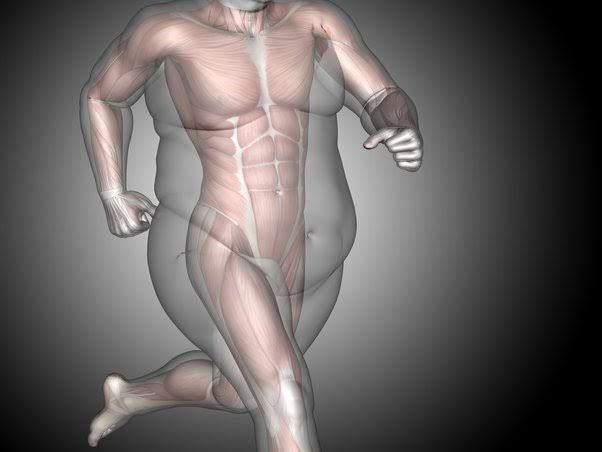No products in the cart.: R0.00
How Does Fat Leave the Body? Unraveling the Science of Weight Loss
Medically reviewed by Dr. Nayana Shetty
INTRODUCTION:
Fat loss is often not fully understood. Do you know how fat leaves the body or where it goes when you lose weight? If you’re unsure, you’re not alone. Here, we’ll explain the science of fat loss and provide useful tips for weight management.
You might think that fat turns into energy or muscle, but it’s not that simple. Let’s dive deeper to understand the process. We’ll explore the role of fat, how your body burns fat, the factors that affect fat loss, and, lastly, share tips for effective weight control.
The Science of Fat and Weight Loss –
Have you ever thought about what fat is? How does fat leave your body? How does it work in our bodies? Let’s look at different body fat types and their roles. We’ll also explain how our body stores and uses fat.
The Role of Fat in the Human Body
Fat has key roles. These are:
Storing energy: Fat stores extra energy as triglycerides
Keeping us warm: Fat insulates us
Making hormones: Fat tissue makes hormones that control many biological processes
Fat loss byproducts and how they leave the body –
Water, carbon dioxide, and energy
When stored fat breaks down, it turns into water, CO2, and energy
The role of respiration in fat loss
While breathing, we breathe out CO2. About 84% of lost fat leaves our bodies as CO2.
Excretion via bodily fluids
The remaining 16% of lost fat becomes water. This leaves our bodies through urine, sweat, and other bodily fluids.
Factors Influencing Fat Loss –
A lot of things can affect your rate of fat loss. Your diet, exercise routine, hormones, and metabolism.Each plays its part.
1. DIET AND NUTRITION :
Eating well is important for weight control and fat loss. If you don’t eat right, your body won’t burn fat as it should. Getting the right balance of carbohydrates, proteins, and fats is key. Each plays a unique role in your body. The right balance may provide enough energy and support fat loss.
2. EXERCISE AND PHYSICAL ACTIVITY:
The role of exercise in burning fat
Exercise helps burn calories. This creates a calorie deficit and aids fat loss. It also improves blood circulation, feeding our cells with oxygen and nutrients. This may help remove waste too.
Different types of workouts for maximizing fat loss
Mixing up your workouts is helpful. Some good ideas are aerobic activities, resistance training, and high-intensity interval training (HIIT). This may help with fat loss.
3. HORMONAL BALANCE AND METABOLIC RATE:
Influence of hormones on fat storage and burning
Hormones play a big role in weight and body fat control. For instance, insulin and leptin can affect your appetite and energy balance.
How metabolism affects weight loss
Your metabolism determines how efficiently your body changes food into energy. A slow metabolism can make losing weight harder. But a quick one can help burn fat.
Kindly refer to the following table for the impact each factor has on weight loss:
Factors Affecting Fat Loss Distribution :
Your genetics, hormones, and body structure can affect how and where you lose fat. Certain medcations and health conditions can too.
Stubborn Fat and why it’s Hard to lose :
Even though fat loss is gradual, some areas may be tougher. The belly and hips, for example, can resist fat loss. They have more alpha 2-adrenergic receptors, which slow down fat burning.

Tips for Promoting Fat Loss and Maintaining a Healthy Weight :
If you want to lose weight and stay healthy, here’s what you may do:
1. Smart dietary choices
Portion control: Watching what you eat can prevent overeating. It can help with weight loss too.
Incorporating whole foods and avoiding processed foods: Eat whole foods. Stay away from processed ones. This gives you the nutrients you need. It also supports a balanced diet, good health, and fat loss.
2. Staying physically active
Including fun activities makes it easier to stick to a workout routine. It gives better weight loss results. Just make sure your workout plan fits your fitness level and your goals.
3. Ensuring proper sleep and stress management
Poor sleep and stress can contribute to weight gain. They disrupt your hormonal balance, increasing hunger and promoting fat storage. Addressing these factors can significantly improve your weight loss efforts.
However, if you have a medical condition, it’s best to consult your healthcare provider. They can guide you on the most suitable exercise and diet plan to help you achieve your goals safely and effectively.
Conclusion
Knowing how fat loss works is key to losing weight. Remember, every person’s journey is different. Factors such as diet, exercise, hormones, and metabolism affect how you lose fat and your success. By using the practical tips shared here, like eating right, exercising often, and dealing with sleep and stress, you’re more likely to lose fat and stay healthy for many years to come.
Losing fat needs hard work, consistency, and a clear understanding of weight loss science. As you start on your weight loss journey, remember, changes start at a tiny level. Stick with it, and you’ll see the benefits of a healthier, more self-assured you.





